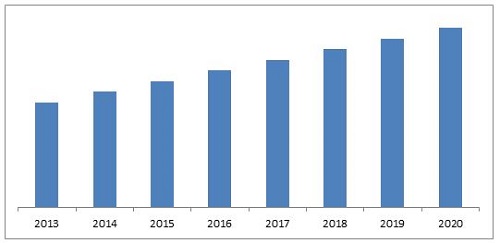The global smart homes market was valued at $20.38 billion in 2014 and is expected to reach $58.68 billion by 2020 at an estimated CAGR of 17% between 2015 and 2020. Smart homes solutions is gaining interest among a significant number of home owners, new home buyers, property developers, and housing industries across the globe. Security & access control is the most accepted application amongst all smart home applications. Besides, a substantial section of home owners are also interested in features such as entertainment control and energy management. For a good lighting ambience and energy saving features, lighting controls have become an emerging category among smart home enthusiasts.
Energy management system and security & access control generate more revenue for smart home solution providers. Both accounted for 65% of the global smart homes product market in 2014. A strong impetus from smart home product manufacturers and rising concerns related to security and energy savings have gained prime importance in the smart homes product market. Smart home device manufacturers are also coming up with innovative technologies for different smart home solutions, which comprise security control & access control, entertainment control, energy management systems, and HVAC control. The concept of the Internet of Things (IoT) is tied in closely with the popularization of the smart homes market. Subsequently, advancements in wireless technologies have also resulted in the growth of the smart homes market, as they allow users to control systems both closely and distantly. Advanced wireless communication technologies such as Z-Wave and ZigBee are enabling the production of cost-efficient smart home solutions.
Ask for Sample Pages @ Click Here
Europe and North America have dominated the smart homes market due to the high standards of living and enhanced lifestyle. Driven by a regaining momentum in the housing market, innovations, better affordability, and increasing end-user awareness, the North American smart homes have the highest market size. The Asian region lags far behind its counterparts in the implementation of smart home systems and solutions. One of the key factors responsible for it is the awareness and high costs associated with smart home products. Smart home technologies are moving towards cloud based services; therefore, the cost of service is expected to reduce gradually, making the automation for residential buildings affordable. The growth in the real estate industry, especially in Asia-Pacific has been witnessing a massive transformation, since the last couple of years with innovative concepts such as smart homes and connected homes. This is again a positive sign for the Asian smart homes market, which is expected to attain heavy growth in infrastructure and housing activities.
